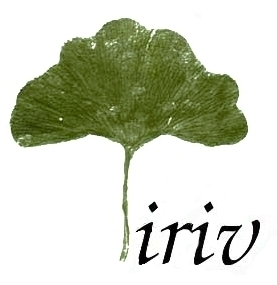Volunteering among Seniors
The ageing of Europe's population is a crucial challenge for the 21st Century. In the years to come, a quarter of our European population will be older people and retirees. Seniors are not a homogeneous group of the population : you don't cope with the same problems wheter you are over 50, over 60, over 70 or over 80. Your retired life depends on your personal background (social , professional...). It is very linked to the cultural and geographical area you belong to (city or countryside, role of the family, existing social services...) There is a european network of seniors encouraging volunteering: silver economy europe.
Volunteering as a key issue for seniors
Nevertheless seniors usually have in common free time and life experience. These are the two main conditions for becoming a volunteer : time and skills to share with others. Free time means time freely chosen. Senior volunteering is also influenced by many factors : whether government policies/programmes exist, different practices and trends in family support, employment policies, education, learning and leisure opportunities, cultural issues, the status itself of older people in society...
Volunteering a key issue for the European Commission
Les activitÃĐs qui dominent le temps libre à l'ÃĒge de la retraite sont souvent les mÊmes que celles qui ont ÃĐtÃĐ pratiquÃĐes durant la vie active. Les retraitÃĐs ne se dÃĐcouvrent pas, en gÃĐnÃĐral, subitement une vocation bÃĐnÃĐvole. Les personnes les plus susceptibles d'Être bÃĐnÃĐvoles sont celles qui l'ont ÃĐtÃĐ pendant leur vie active, souvent dÃĻs leur jeunesse. Il arrive cependant que certains se lancent dans une activitÃĐ, bÃĐnÃĐvole ou non, qui leur fait dÃĐcouvrir une richesse laissÃĐe en sommeil pendant leur vie professionnelle. Les champs d'activitÃĐ des bÃĐnÃĐvoles retraitÃĐs sont les mÊmes que ceux des autres bÃĐnÃĐvoles. Les domaines sportif, culturel, et de loisirs sont prÃĐdominants. Toutefois, les activitÃĐs à caractÃĻre social prennent de plus en d'importance . Le bÃĐnÃĐvolat dans le champ ÃĐconomique (aide à la crÃĐation d'entreprise, à la recherche d'emploiâĶ) ne concerne que 1% des retraitÃĐs et prÃĐretraitÃĐs. La notion de travail ÃĐvolue dans des sociÃĐtÃĐs dÃĐveloppÃĐes dans lesquelles les pÃĐriodes de non activitÃĐ sont de plus en plus longues. L'augmentation du temps, voulue ou contrainte, a et aura une incidence de plus en plus grande sur l'engagement bÃĐnÃĐvole. La solidaritÃĐ entre gÃĐnÃĐrations, entre actifs et inactifs, entre populations fragilisÃĐes et privilÃĐgiÃĐes, devient une motivation largement partagÃĐe.
Volunteering of the Seniors in perspective
Im most European countries, we observe the phenomenom that where we would expect retiring people to take a greater share in volunteer work, which might provide them with new activities, new perspectives and new social networks to replace the networks of paid labour, this is not true. Older people retire but don't spend more time in volunteering. They replace their professional activities by more passive forms of involvement (media consumption, leisure activities...). A European research should focus on the transition period around retirement and involve labour market partners, traditional social partners and seniors organisations. Ageing should be seen as a wealth and not as a weight for the younger generations. Demographic change in volunteering, as in the European societies in general, is not seen as a challenge but as a threat. A European research should also associate volunteer organisations, researchers and media to present a more dynamic approach of volunteering involving all ages. The intergenerational aspect is really important.
Learn more
- Intervention of iriv for a groupe Mornay.
- Halba (Bénédicte), Bénévolat et volontariat en France et dans le monde, La Documentation franįaise, Paris, 2003
- HÃīte (Jean -Michel), "La place des retraitÃĐs dans une France solidaire et citoyenne", AnnÃĐe Internationale des Personnes ÃĒgÃĐes 1999, CLEIRPPA, Paris, 1999.
← Back









